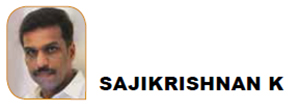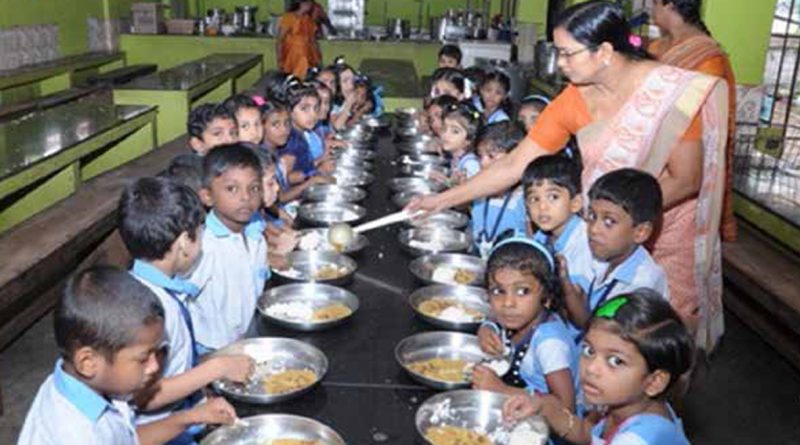ENSURING BALANCED DIET

The meal given to a child in schools consists of hot cooked rice along with three side dishes prepared from pulses, legumes, tuber crops, vegetables (including leafy vegetables), coconut, etc. A total number of 12307 schools/institutions in the State are currently registered under the programme. The State can boast of several innovative and best practices in the implementation and successful conduct of the PM POSHAN.
Additional Food Items– Milk and Egg/ Banana are supplied to children as additional food items. Every child is fed 150 ml of milk twice a week and one egg/banana once a week. The State state implementing the mid-day meal program in a decentralized manner and by ensuring wholehearted community participation. ENSURING BALANCED DIET Multi-tap water facilities in schools:–All the 12037 schools in the State that are covered under PM POSHAN are equipped with multi-tap water facilities for hand washing.
Breakfast Scheme – Breakfast scheme is implemented in 2400 schools in the state. Local self Government Institutions, Charitable Trusts and in some cases, school PTAs successfully run a scheme for providing breakfast to children in many schools. In the State Capital alone, the scheme of providing breakfast to children is going on in more than 180 schools with the financial assistance of the City Corporation.
School Nutrition Gardens – Around 10301 (85.6%) schools have set up SNGs wherein different types of vegetables are cultivated using organic/indigenous farming techniques. In several schools, SNGS are set up under a programme called “Comprehensive Vegetable Development Programme” conceived and implemented by the Department of Agriculture and its agencies. To make the younger generation aware of the value and importance of agriculture and to acquaint them with farming and agrarian roots of the State, a novel project named “PadamOnnuPaadathkeku” (“Lesson Oneto the Field”) was launched in September, 2019 as a joint initiative of State General Education Department & Department of Agriculture. The initiative met with resounding success as many schools have come forward to embrace this novel idea and started to cultivate different indigenous varieties of paddy on leased lands. The rice so produced is used to prepare breakfast and special nutritive dishes for children.
Tasting the cooked food by teachers and members of SMC & Mother PTA– Teachers in charge of PM POSHAN, members of SMC& Mother PTA taste the cooked food and ensure its quality and palatability before it is served to children. A separate register named the ‘tasting register’ is maintained at all schools for recording the remarks of SMC/Mother PTA members.
Special Rice distributed during Festive Occasions – all children up to class VIII who are covered under PM POSHAN are provided with 5 kg rice each ( one time a year) during the ten-day-long Onam Festival during August/September every year and other festival occasions. The expenditure in this regard is met by the State from its resources.
Higher rate of Honorarium to Cook cum Helpers: – Honorarium is disbursed at a higher rate than the State mandatory share. A minimum daily honorarium of Rs.600/- to a maximum honorarium of Rs.675/- is paid to a cookcum- helper.
Testing of Food & Water Samples– food and water samples are collected on a regular basis from schools and tested for microbiological parameters in a NABL and FSSAIaccredited laboratory.
Waste Disposal Facilities in schools – The majority of schools have set up their own waste disposal systems including biogas plants for the effective disposal of organic waste. The idea is to produce a sustainable cycle in schools – the biogas produced would be used in the school kitchen while the slurry got as a by-product could be used as organic manure for the vegetable garden of the students.
Social Audit– Social Audit was conducted in 20 schools each in all 14 districts during the year 2022- 23. Kerala Institute of Local Administration (KILA) was designated as the agency to facilitate the conduct of the audit. Four or five persons among the parents of children were selected and trained to be social audit councilors. The school Sabha meetings and public hearings (for a cluster of five schools) were organized wherein the audit report was read out to the public.
Monitoring Committees at various levels
For the effective management and monitoring of this Scheme, monitoring committees are constituted at the State, District Block, and LSG institution levels. At school level a Committee known as ‘School PM POSHAN Committee ‘is constituted with the school PTA President as Chairman and the Headmaster of the school as the Member Secretary. SMC Chairman, MPTA President/ Member, representative of the school Manager (if the school is government-aided), parents of SC/ST children, representatives of parents of children belonging to SC/S and minority communities, teachers’ representatives, local ward councillor, a representative of the cook-cum-helper and a student representative are the other members. The committee is convened once every month. The team will submit a detailed report once in three months to the Director of General Education. A Noon Feeding Supervisor in the cadre of Senior Superintendent and a Noon Meal Officer in the cadre of Junior Superintendent are posted at DDE and AEO offices respectively to monitor the Scheme and to conduct regular inspections.


